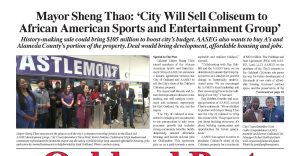Black History
COMMENTARY: Divisions Set in Concrete and Pavement
The racial divisions that have split our country for centuries don’t just live in people’s hearts and heads. Some of them exist in concrete and pavement running right through certain neighborhoods. They are structural racism in the most tangible sense.

By Ben Jealous
The racial divisions that have split our country for centuries don’t just live in people’s hearts and heads. Some of them exist in concrete and pavement running right through certain neighborhoods. They are structural racism in the most tangible sense.
In Milwaukee last month, local activists told me about their fight against that kind of division. Wisconsin’s transportation department wants to expand a crumbling 3.5-mile stretch of Interstate 94 running through the state’s largest city at a cost of $1.2 billion and about 49 acres of land in the neighborhoods adjoining the roadway.
Like Overton in Miami, East Los Angeles and West Montgomery, Alabama, those neighborhoods, home to poor black and brown residents, were subdivided 60 years ago when I-94 was built. The highway continues to cut them off today.
It’s disingenuous to make plans today that don’t consider the history of these highways in places like Milwaukee. The cost to locate interstates, built as courts were ordering desegregation of public schools and housing, was borne by communities of color whose residents were barred from home loans that would have let them move to suburbs that got disproportionate benefit from faster commutes. Planners used code words like blight, renewal, and efficiency to confuse that reality.
A highway project like this creates an actual intersection between creating more equitable communities and protecting the planet. Public works projects that encourage more traffic increase air pollution that impacts our climate, increase noise pollution, and add to flooding and contaminated run-off that damage swimmable, fishable rivers. Those who live closest breathe the most exhaust and live with the constant drone of traffic, but the environmental impact unquestionably stretches far wider.
The estimated cost of expanding I-94 is about $40 million more than fixing the existing six lanes. That’s the same amount that a 50% cut in the current state budget cost mass transit systems in Madison and Milwaukee. Most Milwaukee mass transit riders are workers riding to a job or the disabled and seniors who no longer drive. While black and brown riders make up a disproportionate share of the total, most riders are white.
When we see these fabricated divisions, the question we should ask is who benefits from creating them? We know from troubling experience that the self-interested find ways to separate us even when our interests are the same. Who benefits from a wider interstate? It’s clearly not its neighbors. Not the Milwaukee City Council who opposed the plan. Not drivers today or in years to come as updating the current highway without adding lanes will improve safety and reduce congestion. And not millennials that Wisconsin has spent millions to retain and attract who say they want to live in places that don’t demand driving.
A local issue like this one in Wisconsin matters even if you live three states away because one like it may be coming to where you live soon. We’re on the cusp of many more in every state. Historic federal funding in 2021 and 2022 to repair infrastructure and invest in a cleaner economy must be spent place by place. We need to follow the example of the folks I met in Milwaukee — stay vigilant, never assume that decisions will be made in the best interest of everyone or the planet, build the biggest coalitions we can, and hold officials accountable when we vote.
Ben Jealous is the incoming executive director of the Sierra Club, the oldest and most influential grassroots environmental organization in the country. He is a professor of practice at the University of Pennsylvania and author of “Never Forget Our People Were Always Free,” published in January
Activism
Oakland Post: Week of May 22 – 28, 2024
The printed Weekly Edition of the Oakland Post: Week of May May 22 – 28, 2024
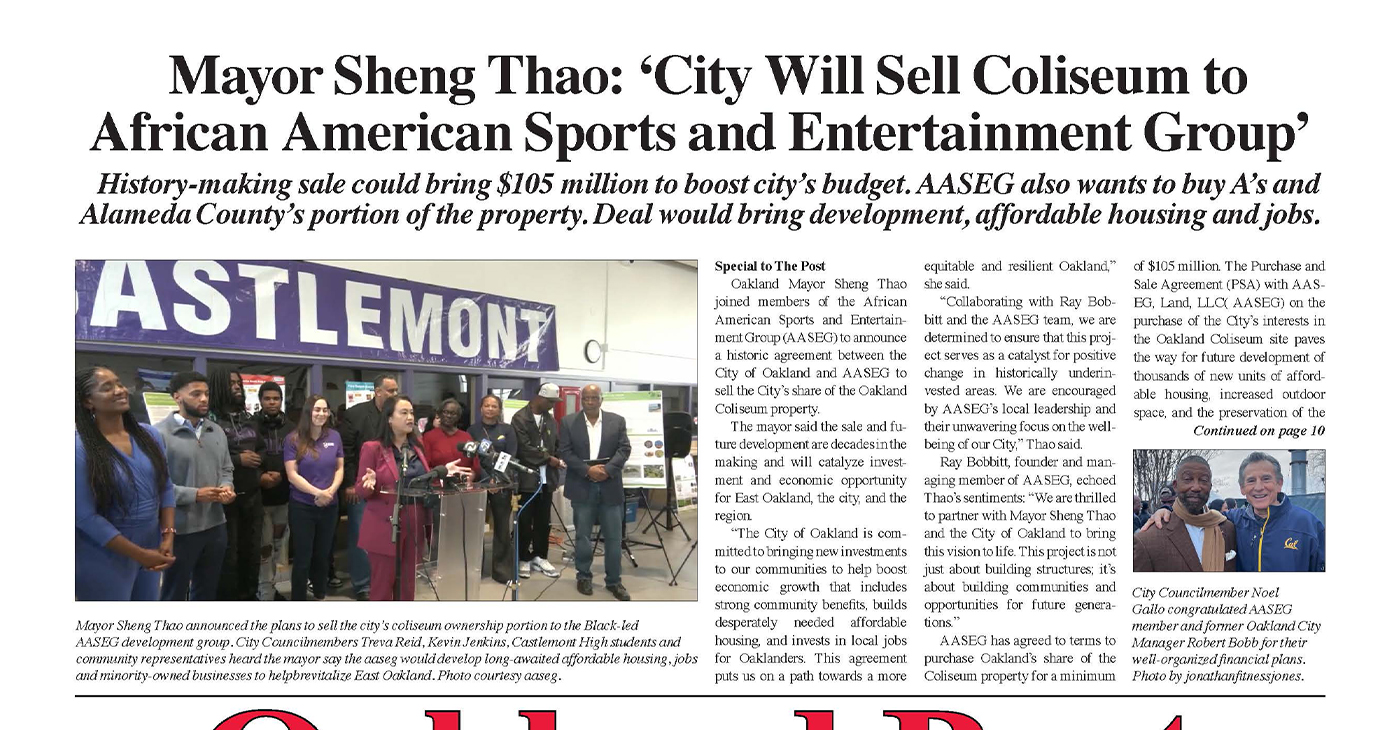
To enlarge your view of this issue, use the slider, magnifying glass icon or full page icon in the lower right corner of the browser window. ![]()
Black History
Book Review: ‘The Jazzmen: How Duke Ellington, Louis Armstrong, and Count Basie Transformed America’
Your toes didn’t wait long before they started tapping. They knew what was coming, almost as soon as the band was seated. They knew before the first notes were played and the hep cats and jazz babies hit the floor to cut a rug. Daddy, it was the bee’s knees but in the new book “The Jazzmen” by Larry Tye, if you were the Sheik on the stage, makin’ cabbage wasn’t all that swank.
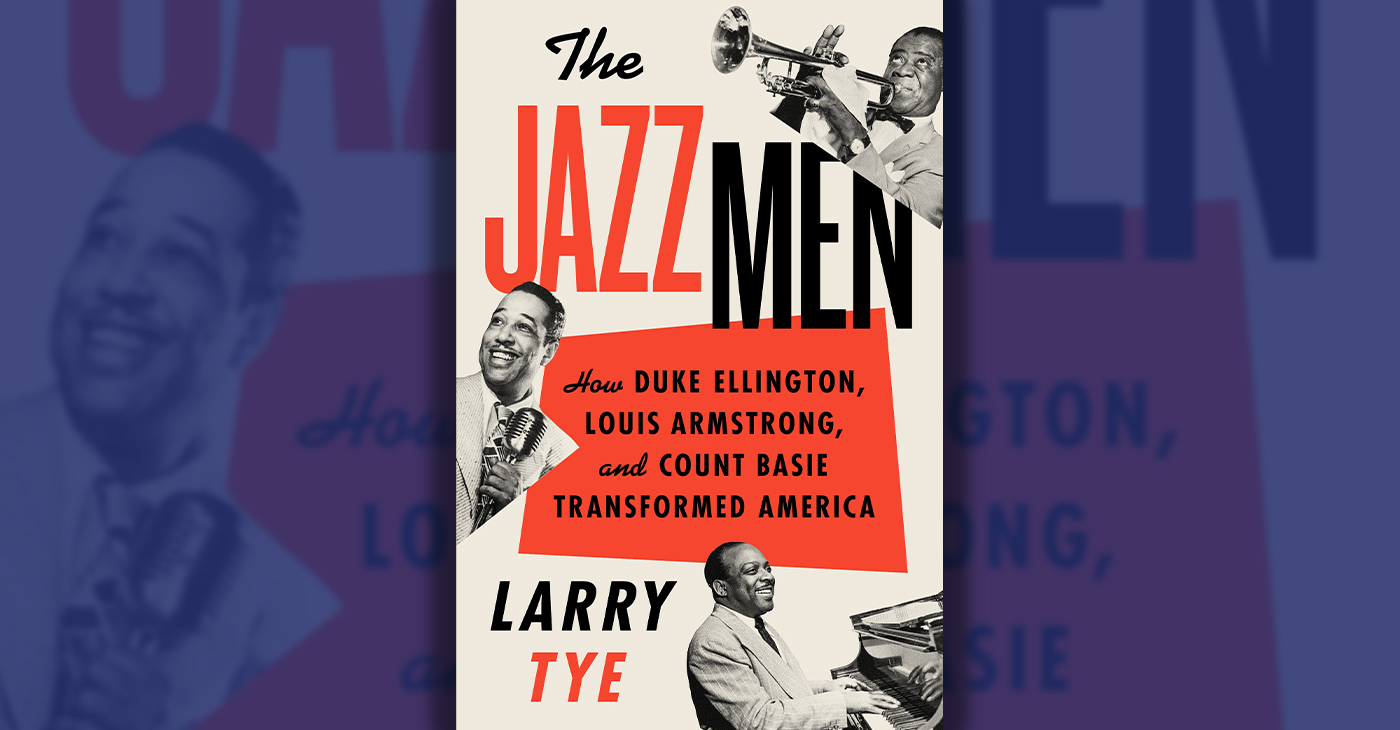
By Terri Schlichenmeyer
Your toes didn’t wait long before they started tapping.
They knew what was coming, almost as soon as the band was seated. They knew before the first notes were played and the hep cats and jazz babies hit the floor to cut a rug. Daddy, it was the bee’s knees but in the new book “The Jazzmen” by Larry Tye, if you were the Sheik on the stage, makin’ cabbage wasn’t all that swank.
Louis Armstrong was born in 1900 or thereabouts in a “four-room frame house on an unpaved lane” in a section of New Orleans called “Back o’Town … the Blackest, swampiest, and most impoverished” area of the city. His mother was a “chippie,” and the boy grew up running barefoot and wild, the latter of which led to trouble. At age twelve, Armstrong was sent to the Colored Waif’s Home for recalcitrant Black boys, and that changed his life. At the “home,” he found mentors, father-figures and love, and he discovered music.
For years, Bill “Count” Basie insisted that he’d grown up with “no-drama, no-mystery, and nobody’s business but his,” but the truth was “sanitized.” He hated school and dropped out in junior high, hoping to join the circus. Instead, he landed a job working in a “moving-picture theater” as a general worker. When the theater’s piano player didn’t come to work one day, Basie volunteered to sit in. He ultimately realized that “I had to get out … of Red Bank [New Jersey], and music was my ticket.”
Even as a young teenager, Edward Ellington insisted that he be treated like a superstar. By then, his friends had nicknamed him “Duke,” for his insistence on dressing elegantly and acting like he was royalty. And he surely was — to his mother, and to millions of swooning female fans later in his life.
Three men, born at roughly the same time, had more in common than their ages. Two of them had mothers “who doted” on them. All three were perform-aholics. And, for all three, “Race … fell away as America listened.”
Feel up to a time-trip back a century or more? You won’t even have to leave your seat, just grab “The Jazzmen” and hang on.
In his introduction, author Larry Tye explains why he so badly wanted to tell the story of these three giants of music and how Basie’s, Ellington’s, and Armstrong’s lives intersected and diverged as all three were near-simultaneously performing for audiences world-wide. Their stories fascinated him, and his excitement runs strong in this book. Among other allures, readers used to today’s star-powered gossip will enjoy learning about an almost-forgotten time when performers took the country by storm by bootstrapping without a retinue of dozens.
And the racism the three performers encountered disappeared like magic sometimes, and that’s a good tale all by itself.
This is a musician’s dream book, but it’s also a must-read story if you’ve never heard of Basie, Ellington, or Armstrong. “The Jazzmen” may send you searching your music library, so make note.
Activism
Oakland Post: Week of May 15 – 21, 2024
The printed Weekly Edition of the Oakland Post: Week of May May 15 – 21, 2024

To enlarge your view of this issue, use the slider, magnifying glass icon or full page icon in the lower right corner of the browser window. ![]()
-

 City Government4 weeks ago
City Government4 weeks agoCourt Throws Out Law That Allowed Californians to Build Duplexes, Triplexes and RDUs on Their Properties
-
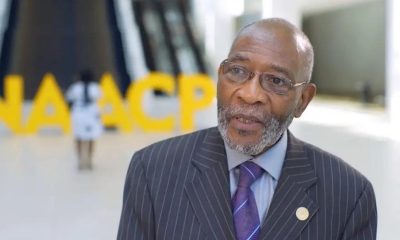
 Activism4 weeks ago
Activism4 weeks agoS.F. Black Leaders Rally to Protest, Discuss ‘Epidemic’ of Racial Slurs Against Black Students in SF Public School System
-
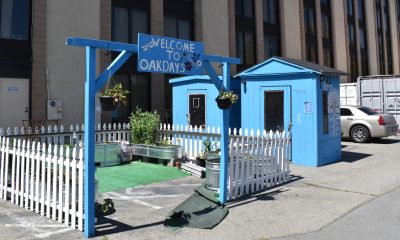
 Alameda County4 weeks ago
Alameda County4 weeks agoAn Oakland Homeless Shelter Is Showing How a Housing and Healthcare First Approach Can Work: Part 1
-

 Community4 weeks ago
Community4 weeks agoOpening Soon: Vibe Bistro Is Richmond’s New Hub for Coffee, Cuisine, Community and Culture
-

 Community4 weeks ago
Community4 weeks agoGov. Newsom, Attorney General Bonta Back Bill to Allow California to Host Arizona Abortion Care
-
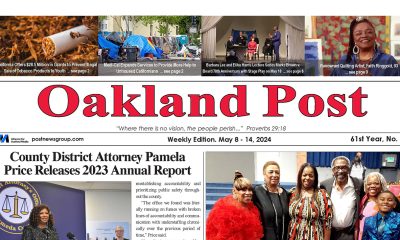
 Activism3 weeks ago
Activism3 weeks agoOakland Post: Week of May 8 – 14, 2024
-

 Bay Area4 weeks ago
Bay Area4 weeks agoMayor Breed Proposes Waiving City Fees for Night Markets, Block Parties, Farmers’ Markets, Other Outdoor Community Events
-

 City Government4 weeks ago
City Government4 weeks agoVallejo Continues to Accept Applications for Boards, Committees and Commissions















